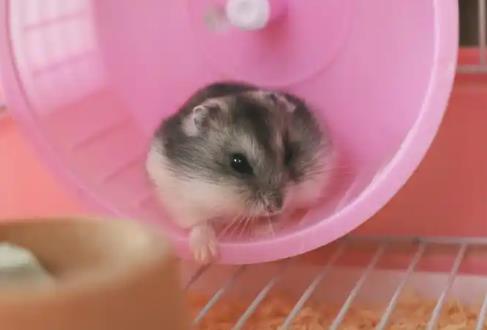Hamsters themselves do not have an obvious body odor. The unpleasant smell mainly comes from their excrements in the breeding environment or improper care. The following is a detailed explanation:

Analysis of the Core Reasons
Accumulation of Urine
If the urine of hamsters (especially male hamsters) is not cleaned up in a timely manner, it will produce a distinct pungent smell of urine. In this case, the following suggestions are recommended:
Use highly absorbent bedding materials (such as activated carbon, wood shavings, or special urine sand).
Train hamsters to urinate in a fixed spot (place a special toilet filled with urine sand).
Problems with Feces and Bedding Materials
The feces of healthy hamsters have almost no odor, but soft stools or wet tail syndrome can lead to a foul smell.
In summer, wood shavings are prone to absorbing odors. It is recommended to switch to cat litter or corn cob bedding materials.
Special Situations
Female hamsters in heat will release special pheromones, which smell similar to something burning.
Improper diet (such as eating too much fruit or mealworms) may cause internal heat or digestive problems, resulting in a stronger odor of excrements.
Solutions
Environmental Management
Clean the cage at least 2 to 3 times a week, and focus on disinfecting the food bowl, water dispenser, etc.
Use deodorizing sprays (choose fragrance-free types) or ultraviolet disinfection.
Cleaning and Care
Provide bathing sand for hamsters to clean themselves. Do not use clean water to bathe them to prevent catching a cold.
Regularly clean the cheek pouches with cotton swabs to prevent food residues from fermenting.
Diet Adjustment
Reduce the intake of foods with high water content. Add an appropriate amount of mung bean skins or broccoli to help reduce internal heat.
Choose a main food with low protein content to avoid an overly strong ammonia smell in the urine.
Example of the Improvement Effect: By using a combination of urine sand and activated carbon bedding materials, along with cleaning the cage 3 times a week, 90% of the breeders have reported a significant reduction in the unpleasant odor.
